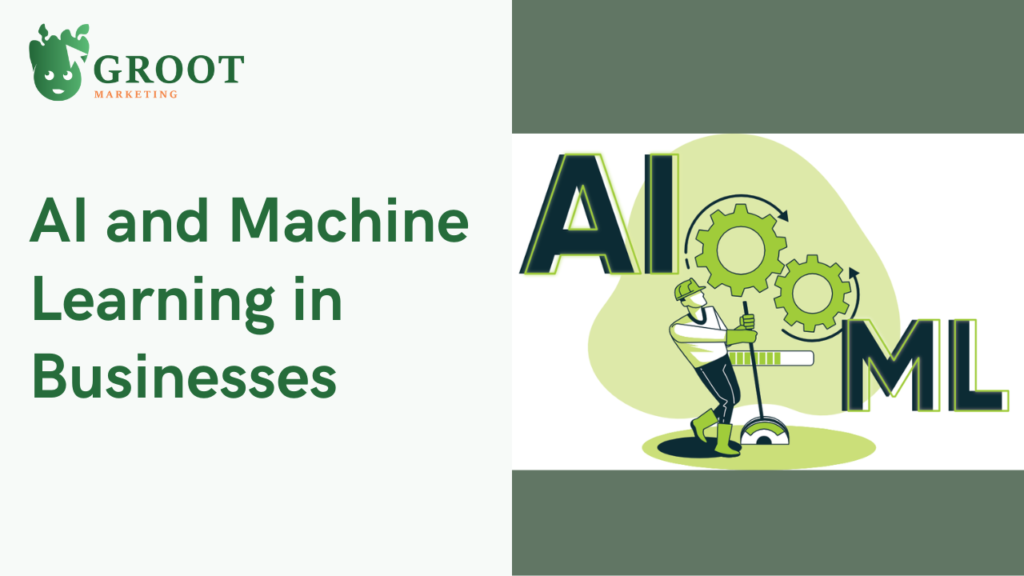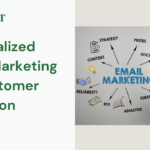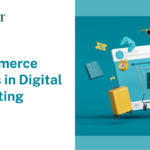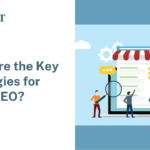Ever-changing in the digital marketing domain, staying ahead requires more than just traditional strategies. Artificial Intelligence (AI) and Machine Learning (ML) are proving to be indispensable tools that businesses are harnessing to transform their marketing efforts. Let’s explore further how these technologies are shaping the future of digital marketing and what businesses can gain from incorporating them into their strategies.
AI and Machine Learning in Marketing
AI and ML are transforming the way businesses approach marketing by providing data-driven insights, automating processes, and enhancing customer experiences. Let’s delve into some key areas where these technologies are making a significant impact:
Predictive Analytics:
AI and ML algorithms analyze vast amounts of data to predict future trends and consumer behavior. For instance, a retail business can use predictive analytics to forecast which products will be in demand, optimizing inventory management and ensuring products are available when customers want them.
Customer Segmentation:
AI enables businesses to segment their audience based on various factors such as demographics, behavior, and preferences. This allows for highly targeted marketing campaigns, ensuring that promotional efforts resonate with specific customer segments. Digital marketing services can leverage AI to create personalized content that speaks directly to the interests of each segment.
Chatbots and Virtual Assistants:
AI-powered chatbots and virtual assistants are becoming integral parts of customer service and engagement. These technologies use natural language processing to understand customer queries and provide instant responses. This not only improves customer satisfaction but also frees up human resources to focus on more complex tasks.
Automating Repetitive Tasks:
Digital marketing involves numerous repetitive tasks, such as analyzing data, scheduling posts, and monitoring campaign performance. AI and ML are adept at automating these tasks, freeing up human resources for more creative and strategic endeavors. By automating mundane tasks, businesses can operate more efficiently, reduce manual errors, and focus on innovation.
Personalization Redefined:
One of the standout features of AI in marketing is its ability to redefine personalization. With AI algorithms analyzing user behavior, preferences, and interactions, businesses can create hyper-personalized content and experiences. This not only strengthens customer relationships but also significantly improves conversion rates. For instance, e-commerce platforms can recommend products tailored to individual tastes, enhancing the overall shopping experience and increasing the likelihood of making a purchase.
Data-Driven Decision Making:
In the era of big data, making sense of vast amounts of information is a monumental task. AI and ML excel at processing and analyzing massive datasets, providing actionable insights for businesses. Marketers can make informed decisions backed by data, ensuring their strategies are not just based on intuition but on real-time information. This data-driven approach extends beyond just marketing efforts, influencing overall business strategies and fostering a culture of adaptability and responsiveness.
Fraud Detection and Prevention:
In the realm of digital marketing, fraudulent activities can have significant consequences. AI is being utilized to detect and prevent fraud by analyzing patterns and anomalies in user behavior. Ad fraud, for example, can be mitigated through AI algorithms that identify irregularities and take immediate preventive measures. This ensures that marketing budgets are utilized effectively and that businesses get real value for their investments.
Social Media Optimization:
Social media platforms are integral to digital marketing, and AI is playing a crucial role in optimizing social media strategies. AI algorithms analyze user interactions and preferences on social media, helping businesses tailor their content to resonate with their target audience. Automated social media posting schedules, content recommendations, and sentiment analysis are some of the ways AI is enhancing social media marketing efforts.
The Rise of Voice Search:
With the increasing wide-spread of voice-activated devices, optimizing for voice search has become a priority. AI-powered voice assistants like Siri and Alexa are shaping how users search for information. Businesses incorporating AI into their SEO strategies can adapt to this shift by optimizing content for conversational queries and ensuring a seamless experience for voice search users.
Examples of AI and ML in Action
Netflix’s Recommendation System:
Netflix employs a sophisticated recommendation system that utilizes machine learning algorithms. By analyzing user viewing history, preferences, and behavior, the platform suggests personalized content to keep users engaged. This not only improves user satisfaction but also keeps them subscribed for longer periods.
Email Marketing Optimization:
AI is being used in email marketing to optimize content and delivery times. Platforms like Mailchimp use machine learning to analyze user engagement patterns, helping businesses send emails at the most effective times and personalize content based on individual preferences.
Google Ads Smart Bidding:
Google Ads incorporates machine learning to enhance bidding strategies. Smart Bidding algorithms analyze various factors, such as device, location, and time of day, to adjust bidding in real-time. This ensures that businesses get the most value from their ad spend by reaching the right audience at the right time.
The Role of AI in SEO:
AI is playing a crucial role in Search Engine Optimization (SEO) by helping businesses improve their online visibility. Google’s algorithm updates, such as RankBrain, utilize machine learning to understand the context of search queries and deliver more relevant results. Businesses can leverage AI tools to optimize website content, improve user experience, and stay ahead in the competitive online landscape.
Conclusion
As businesses continue to navigate the ever-evolving digital landscape, the integration of Artificial Intelligence and Machine Learning into marketing strategies has become imperative. From predicting consumer behavior to personalizing customer experiences, these technologies are empowering businesses to stay competitive and relevant.
Digital marketing services that embrace AI and ML can deliver more effective and targeted campaigns, ensuring that businesses reach their audience in meaningful ways. The examples highlighted in this blog demonstrate the tangible impact of these technologies, providing a glimpse into the exciting possibilities that AI and ML bring to the world of marketing. Embracing these innovations is not just a trend, it’s a necessity for businesses looking to thrive in the digital age.







